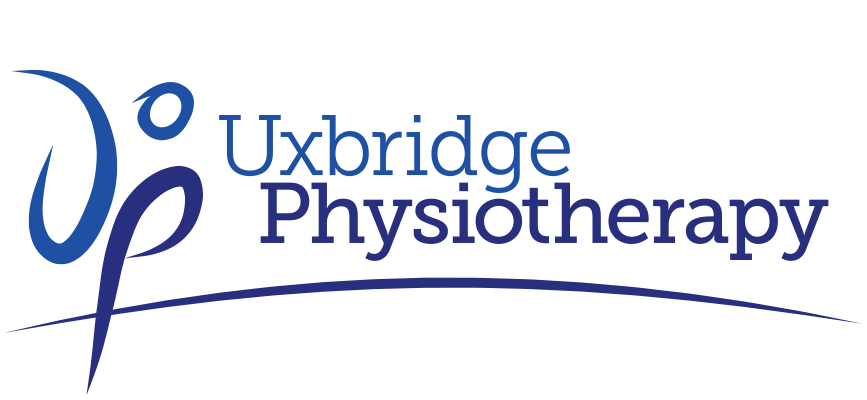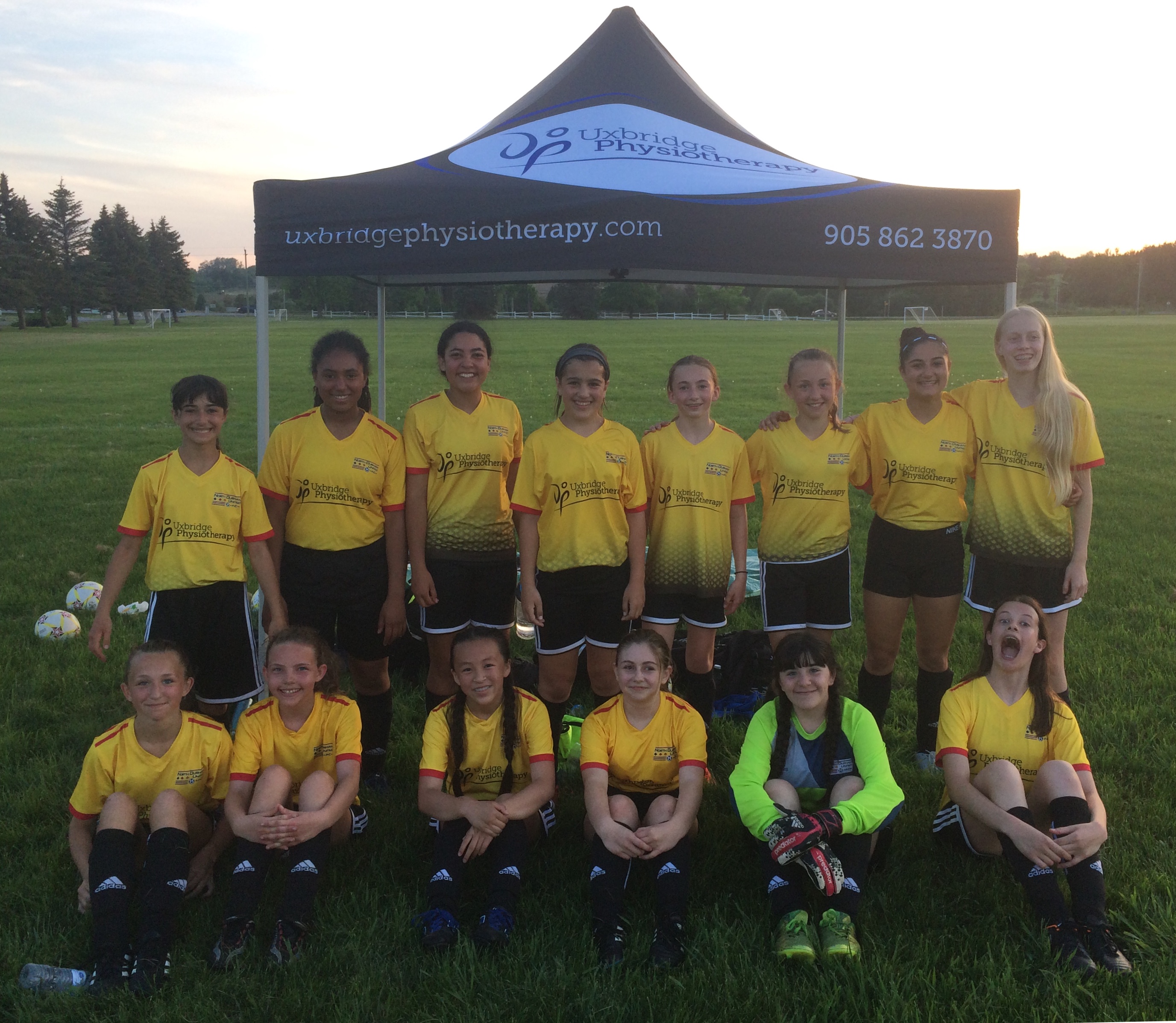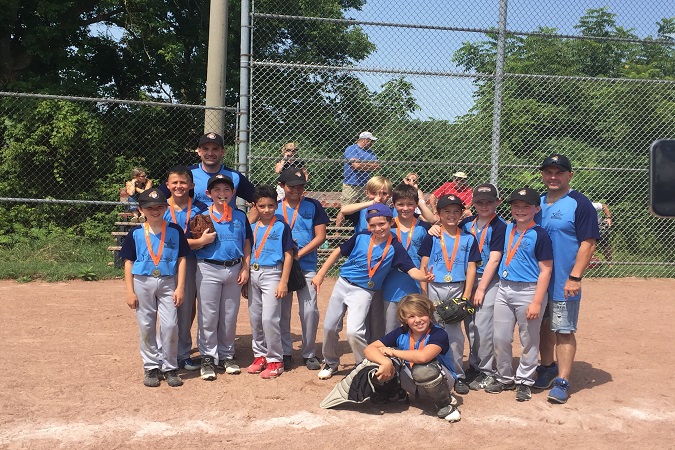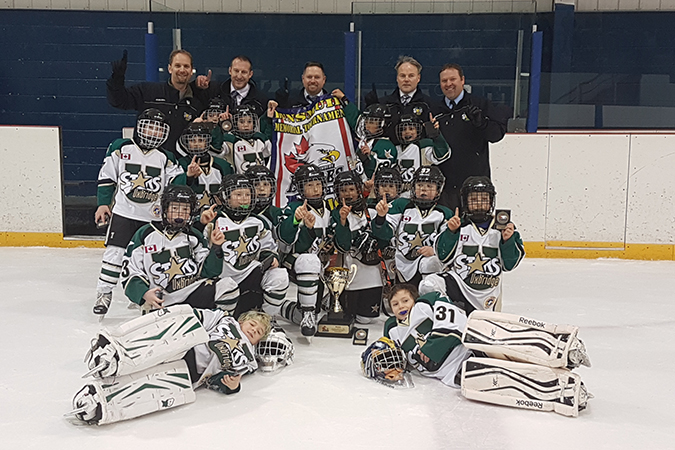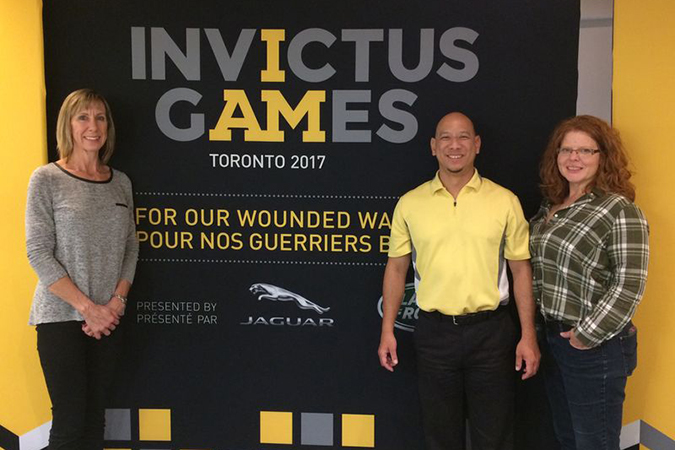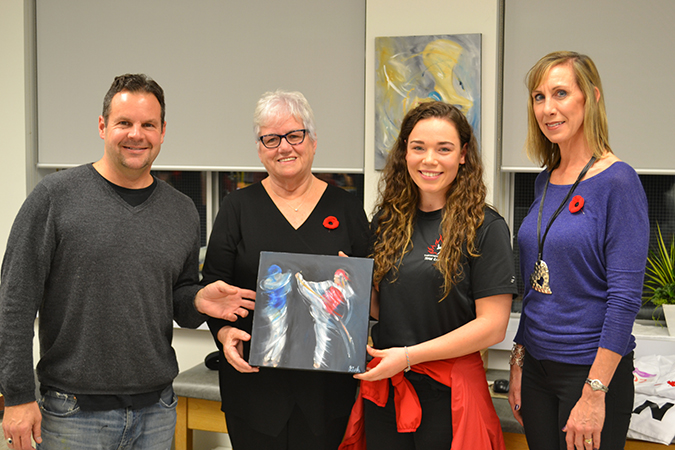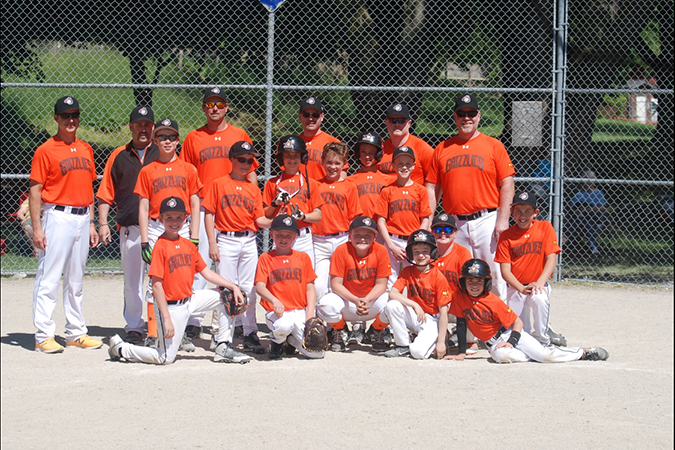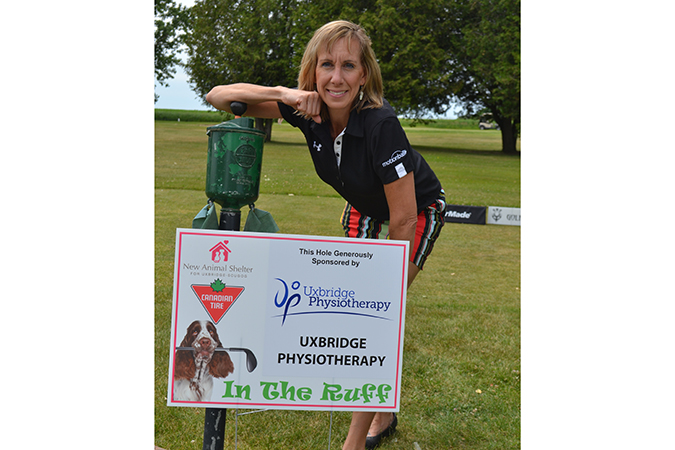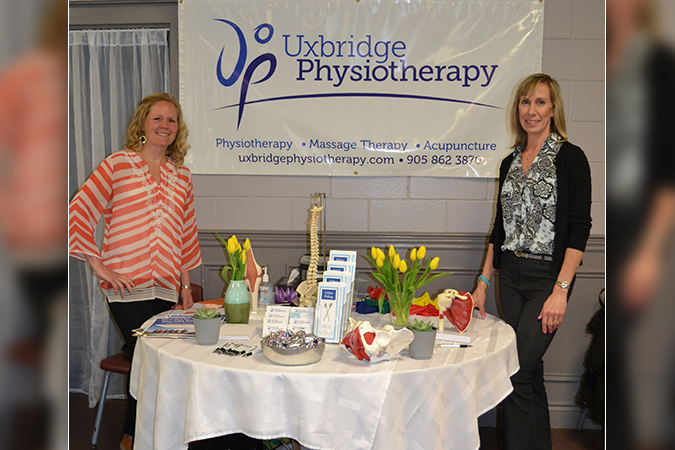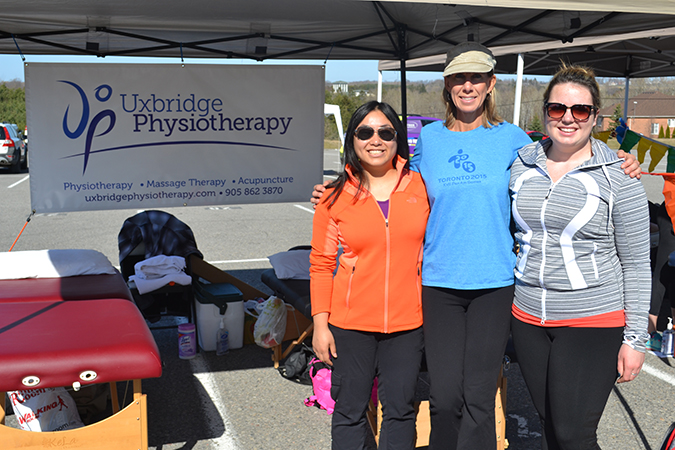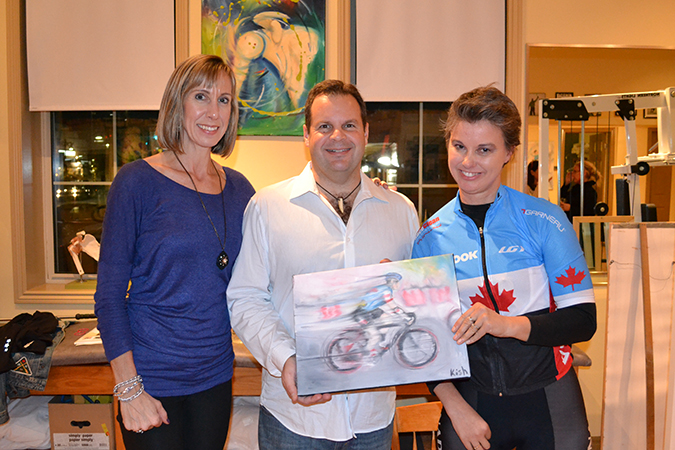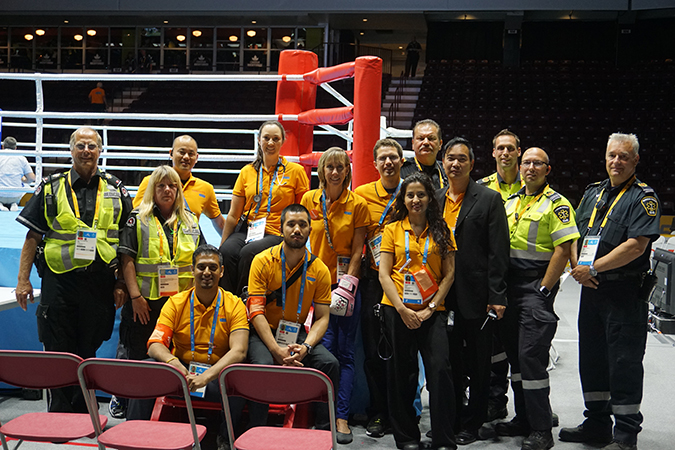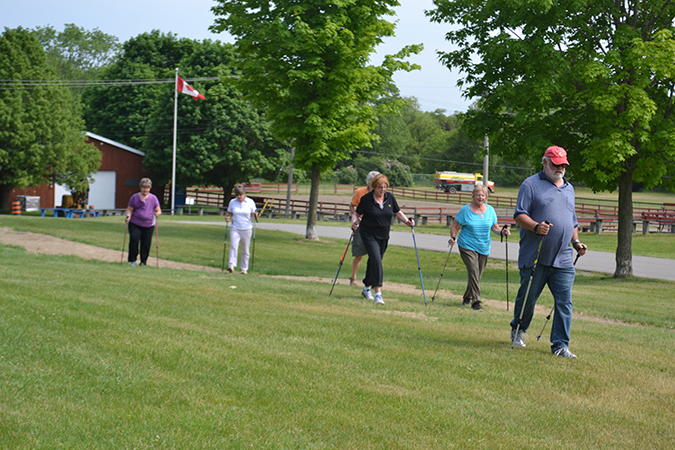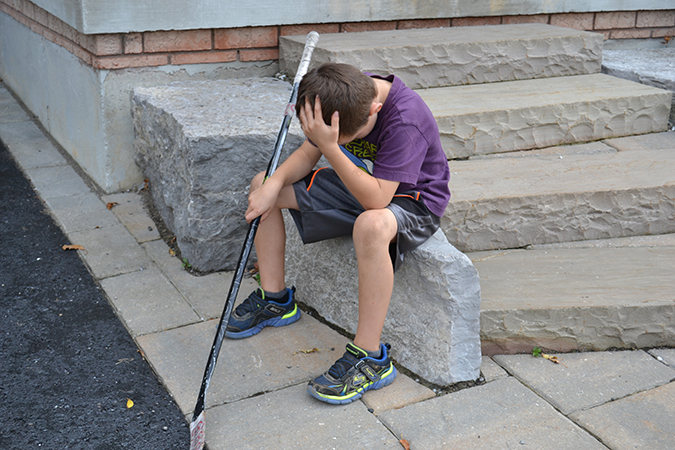Community
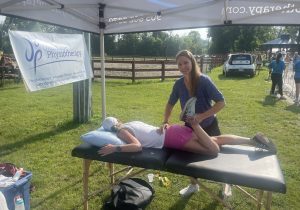
Run for the Diamond 2023
Uxbridge Physiotherapy was happy to provide treatment and advice to runners who recently participated in the 2023 Run for the Diamond, supporting the Uxbridge Hospital Auxillary.
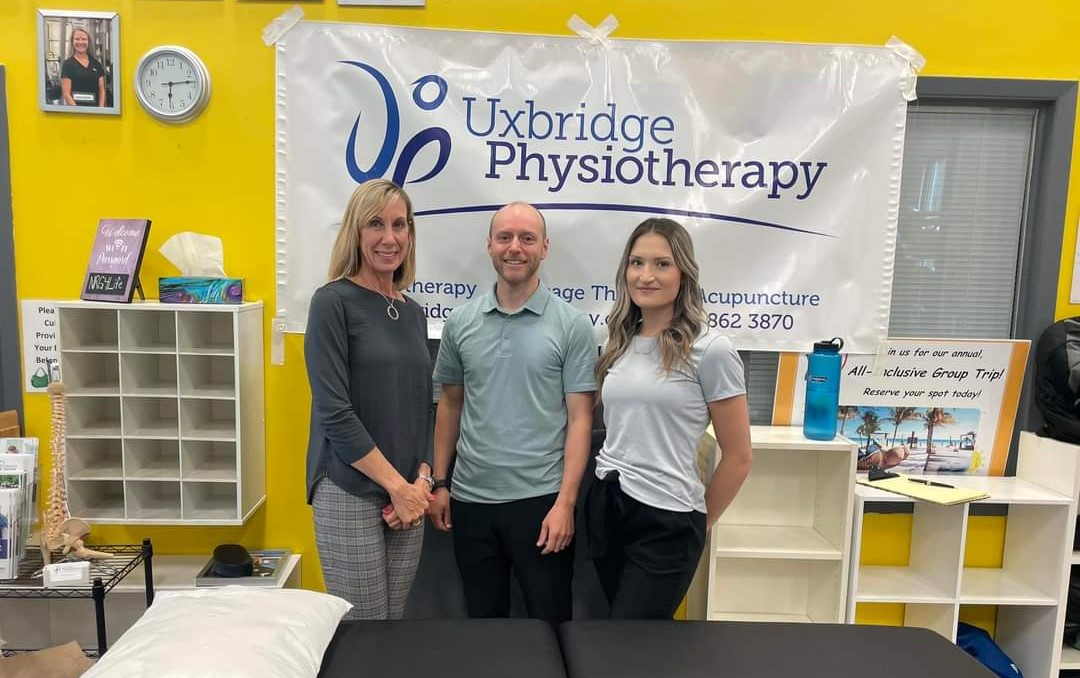
NRG4Life Fitness
Jodi and Jeff from Uxbridge Physiotherapy along with their Queen’s University student Andrea were present at NRG4LifeFitness on June 7, 2023. They answered questions about physiotherapy, what they do at the clinic, and anything exercise or rehab related.
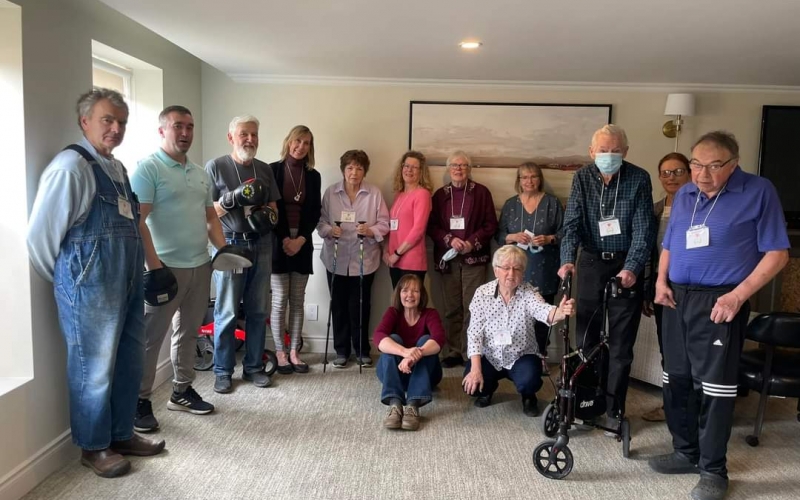
Parkinson’s Support Group
Jodi Bussiere, Physiotherapist, and Dale Andrew, Personal Trainer, spoke with The Parkinson’s Support Group in Uxbridge on April 6, 2023. They discussed topics such as exercise, physiotherapy and pole walking, and their benefits for people with Parkinson’s Disease.
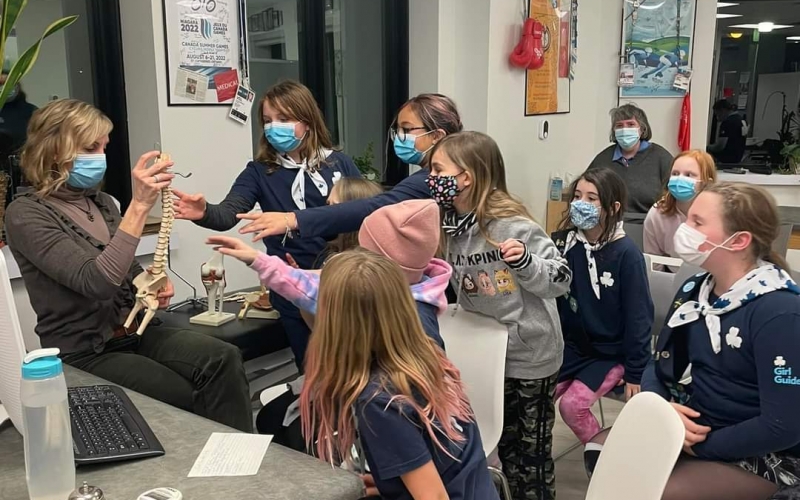
Uxbridge Girl Guides
The 1st Uxbridge Guides came to visit Uxbridge Physiotherapy on February 28, 2023 to learn about what we do at the clinic. Jodi Bussiere talked about Physiotherapy, her experiences at The Canada Games and Canine Physio.
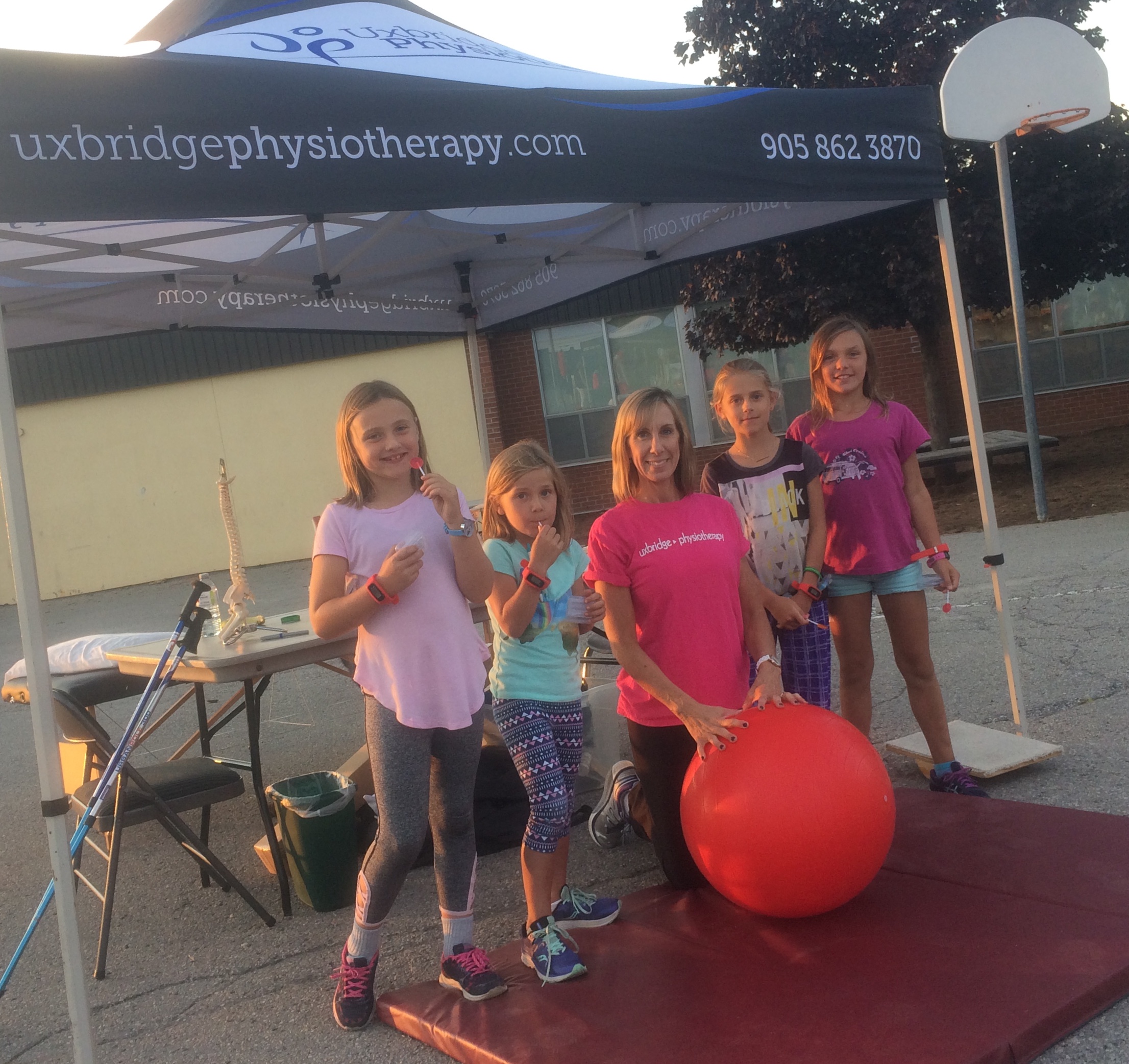
Family Fitness Night
Uxbridge Physiotherapy participated in the Family Fitness Night in October 2018, where they gave fitness challenges to children, and taught them about their bodies.
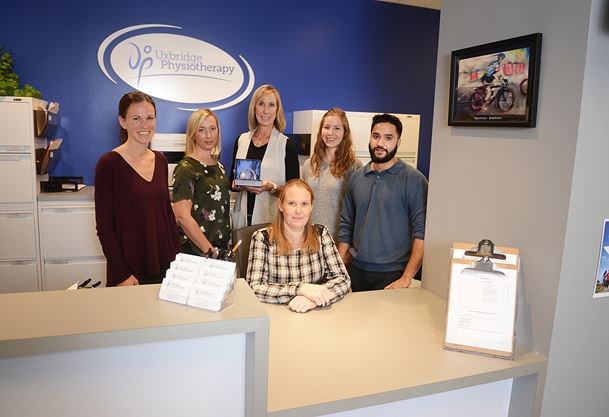
Accessibility Award
Jodi Bussiere and her team won an Accessibility Award from the Region of Durham in 2018, for the design of their clinic, and for providing medical care to clients with diverse abilities.
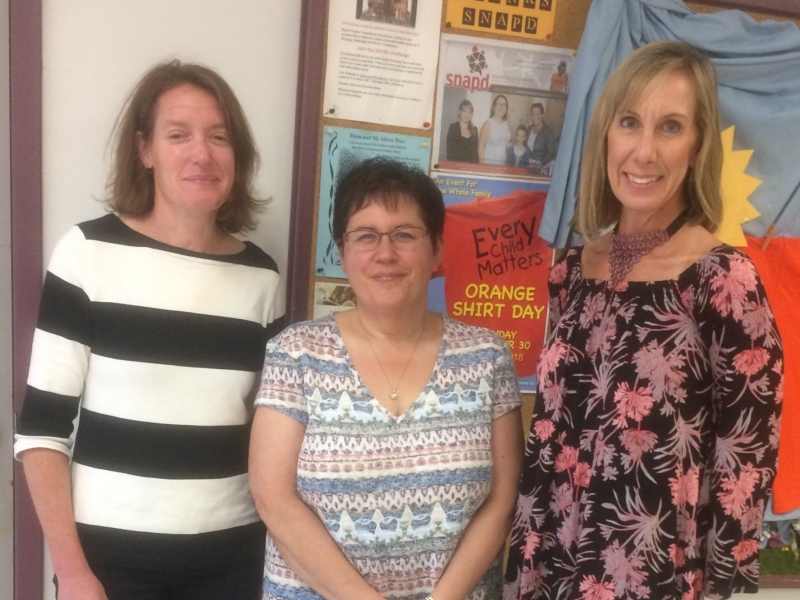
Fall Prevention
Jodi Bussiere was a guest speaker on the topic of “Fall Prevention” to seniors in October 2018.
North Durham United Soccer
Uxbridge Physiotherapy sponsored the U13 Girls North Durham United Rep Soccer Team again in 2018. Good luck girls!
Uxbridge Stars Hockey
Uxbridge Physiotherapy was proud to sponsor the Uxbridge Stars Novice A Rep hockey team, who were finalists in the 2016-2017 season. Way to go boys!
Invictus Games
Jodi Bussiere was involved as a Medical Lead for the 2017 Invictus Games, which were held in Toronto.
Portrait Presentation to Rachel Cuma
Jodi Bussiere, Owner of Uxbridge Physiotherapy, Scott Kish, artist, and Gerri Lynn O’Connor, Mayor of Uxbridge, present Rachel with a portrait of Rachel competing in her sport of Taekwondo. Rachel was the guest speaker at the Grand Opening of the new location of Uxbridge Physiotherapy, 29 Toronto Street South, Suite 103.
Uxbridge Grizzlies Baseball
Uxbridge Physiotherapy sponsored The Uxbridge Grizzlies Mosquito Rep Boys 10+11 Fastball Team in 2017. Hope you had a great season boys!
In the Ruff Golf Tournament
Uxbridge Physiotherapy sponsored a hole at the In The Ruff Golf Tournament in 2016, supporting the New Animal Shelter for Uxbridge-Scugog.
Portrait Presentation to Shelley Gautier
Jodi Bussiere, owner of Uxbridge Physiotherapy, and Scott Kish, artist, present Shelley Gautier with a portrait of Shelley competing in her sport of Paracycling. Shelley hopes to win another medal for Canada at the upcoming Para Pan Ams being held in Toronto in August 2015.
Pole Walking
Urban poling originated in European countries for elite level cross country skiers to be able to train in the summer. It has now become a popular adjunct to walking, in order to add an upper body component to the activity, and improve balance and stability. Other benefits of urban poling include: more intense overall workouts, improved posture, decreased impact through the low back, hips and knees, better balance, faster walking speed and it is fun!
Urban poling is a great activity for people with osteoarthritis in their lower bodies who may benefit from putting less stress through their joints. The poles are another option for people after hip or knee surgery. Using poles to walk may also be a good activity for people with osteoporosis, who will benefit from having better posture, and a bit of a walking aid to improve balance. Using poles to walk may help improve safety by lowering the risk of falls. Other people who may benefit from the poles are those suffering from Multiple Sclerosis, Parkinson’s Disease and even people who are in wheelchairs.
Please visit www.uxbridgepolewalking.com to find out more about urban poling, and to sign up for our next pole walking class series.
Concussions in Kids
You don’t know how many times I have heard people say about their kids, “It was just a minor concussion, he’ll be fine!”. A concussion is an injury to the brain, and therefore should be taken very seriously. All concussions are treated the same, no matter how minor or major they may seem.
To make things very simple, one can follow this rule: If your child has any symptoms of a concussion at all, they are not safe to return to play. Signs of a concussion may include: headaches, difficulty concentrating, trouble sleeping, moodiness, nausea, blurred vision and difficulty working on computers and tablets (to name a few). Your child does not need to have lost consciousness to have a concussion. In rare circumstances, kids may not have had any direct impact to their head, and they can still be suffering from a concussion.
The first step in managing a concussion in children, is to seek medical attention from an experienced therapist, doctor or paramedic. If your child has lost consciousness, no matter how brief, you must call 911. If your child’s vital signs are unstable (such as breathing, pulse or pupils), you should call 911. If your child has suffered from an incident, such as a blow to the head, he/she should be watched for signs of concussion. (1) He or she should see a doctor or therapist experienced in concussion management as soon as possible.
This is the 6-step return to play protocol:
1- complete rest
2- non-sport specific light exercise
3- sport-specific exercise
4- non-contact training
5- contact training
6- resume play
The child should take 1-2 days at each stage, ensuring no symptoms return. If he/she remains symptom-free, he/she may move on to the next stage. If symptoms return, he/she must go back to the previous stage until symptom-free again. Children’s brains have been shown to take longer to heal than adults’ brains, so kids may require a few weeks of rest in order to heal their brains completely. If kids return to activities before their brains are completely healed, they may be more susceptible to more concussions.
One of the challenges with diagnosing concussions is that X-rays, MRIs and CT Scans are usually normal. A concussion is most often a soft tissue injury to the brain, which requires rest to recover from. Children often injure their necks when they experience a blow to the head, and this may also contribute to their symptoms. It is helpful in many cases for a child to be assessed by a trusted Physiotherapist or Chiropractor, who is educated in safe neck assessment and treatment. Many teams have their athletes complete baseline testing before the season begins, to help determine if kids have recovered completely from a concussion, by comparing their scores before and after the injury.
In this day and age, kids not only are more likely to be physically active than adults, but they also require their brains to concentrate most days in school and on various technology devices. There is another set of guidelines that should be followed when helping children recover from concussion, better known as “Return to Learn.” (also found in the Child SCAT5).
Teachers, parents and principals should be educated and involved in making modifications to school activities, besides limiting physical activity. Kids may need to completely abstain from or limit screen time (including computers, hand-held devices and television), be given rest time during the day in a quiet room in the school, and be given extra time for assignments and tests, to name a few. These exceptions can go a long way to ensuring your child has a successful recovery from his/her concussion.
In my practice, I have treated many children who are recovering from concussions. In most cases, the parents come to me very frustrated because most of the emergency room staff and doctors have given them conflicting information. Coaches and parents may not realize but they often put pressure on kids to return to sport before they are safe and ready. I work very closely with a sport medicine doctor in Unionville, who manages the medical side of treatment, while I manage the neck treatment and exercises. I spend a lot of time educating the child and parents about the return to sport and learning guidelines. I have had much success helping children recover from concussions. Nevertheless, it remains a challenging area to treat.
In conclusion, it is important to remember our kids only have one brain, and it unfortunately cannot be repaired by any fancy modern technique at the present time. Concussions require the right emergency management, followed by proper guidance to ensure kids get rid of all their symptoms, before they return to sports and computers. And there is no such thing as “just a minor concussion!”
1- The current standardized tool which lists all the signs and symptoms of a concussion is called the Child SCAT5 (Sport Concussion Assessment Tool) designed for 5-12 year olds. http://fecst.inesss.qc.ca/fileadmin/documents/Publications/Scat5-enfants-EN.pdf
